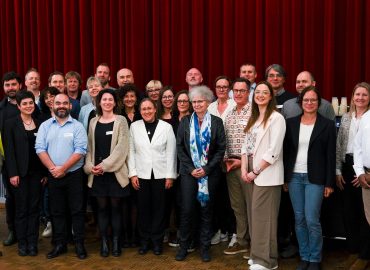Figure 1. Main skills needed for “Managing the Digital Transformation in the Health Sector” in Finland, France, Greece and Portugal (results from the ManagiDiTH Skills Needs Forecasting, September 2023)
It’s very common to hear that the health sector is benefiting from digital transformation processes implemented across the different organizational levels – from administration and management to healthcare provision, influencing and changing the way that professionals do their work and relate to the patients/users. Digital transformation contributes to gain efficiency and effectiveness in management practices, to provide better access and information to users, and to mobilize and analyse large amount of data for better diagnosis or for implementing preventive models and new protocols.
This is true, as it is very much true that health organisations and professionals are immensely challenged by (and sometimes struggling with) the digitalization of health services and practices, mostly because they lack the basic and advanced digital skills necessary to accompany such change. Doctors, nurses and other health technicians are confronted with new models of organizing and delivering their work; and digital experts found sometimes difficult to understand the complexity of health services provision and to communicate effectively with the health professionals. This is one of the main reasons why the Master Programme on “Managing the Digital Transformation in the Health Sector” was conceived and is being funded through the Digital Europe Programme.
This joint Master’s programme is designed to manage the digitalization of health services, to promote the adoption of data science and information system resources to innovate clinical approach, services and to reorganize processes. To achieve this objective, eight consortium partners from four European countries are involved in the project, including: ISCTE – University Institute of Lisbon, Laurea University of Applied Sciences – LAUREA, Aristotle University of Thessaloniki – AUTH, Gustave Eiffel University / ESIEE Paris, IT – Instituto de Telecomunicações, Whymob, Lda., Clinipower Finland Ltd, and Mundiserviços – Companhia Portuguesa de Serviços e Gestão, Lda.
The starting point for developing such Programme corresponding to a Master’s Degree of Level 7 of the European Qualifications Framework and comprising 90 ECTS was the development, in mid-2023, of a Skills Needs Forecasting exercise in four EU countries (Finland, France, Greece and Portugal). This study allowed the project team to identify the main skills needed in the health sector to face the challenges of implementing digital transformation processes. Main skills needed are represented in the Figure 1, distributed by the 3 components of the Master’s curriculum.
Having in mind these results, the ManagiDiTH Master’s programme will be based on a modular set of 17 Curricular Units including a compulsory base as well as optional, giving the students the freedom to customize their educational journey and focus on two particular areas of specialization: Data Science and Interoperability according to their interest and background profile.
The Master’s curricular units were designed jointly by a group of more than 50 teachers of the four universities and will start its implementation in September 2024. It’s an online delivered programme, flexible and adaptable to the different working responsibilities and schedules of health care professionals, with a continuous mentoring of a group of teachers from Finland, Greece and Portugal.
It is an unique Master’s Programme for several reasons: first, because it is not focused only on digital skills, but it combines in its curriculum, social and health related skills, creating a very holistic and comprehensive perspective over digital transformation processes; second, students come from across EU and can participate together in the online learning structure, with in-person summer schools and job placements, combining their diverse ICT and health/social backgrounds, while learning in an international, multi-disciplinary setting and groups; third, an innovative digipedagogic learning strategy focuses on applied learning, industry placements and real-world research; and lastly teachers are trained and collaborate in cross-national teams to develop and deliver courses.
All in all, this Master programme is being built to provide unique and customised learning pathways, throughout each student will learn and apply his/her knowledge and skills in a true European spirit.
If you are interested to apply, please visit the website and submit your application. The Master if free of tuition fees in its two first editions and has a total of 240 vacancies for EU, EEA and Swiss citizens, for each edition. Apply now!
Author: Maria do Carmo Gomes, Chief Lead Researcher and Coordinator of the ManagiDiTH project



